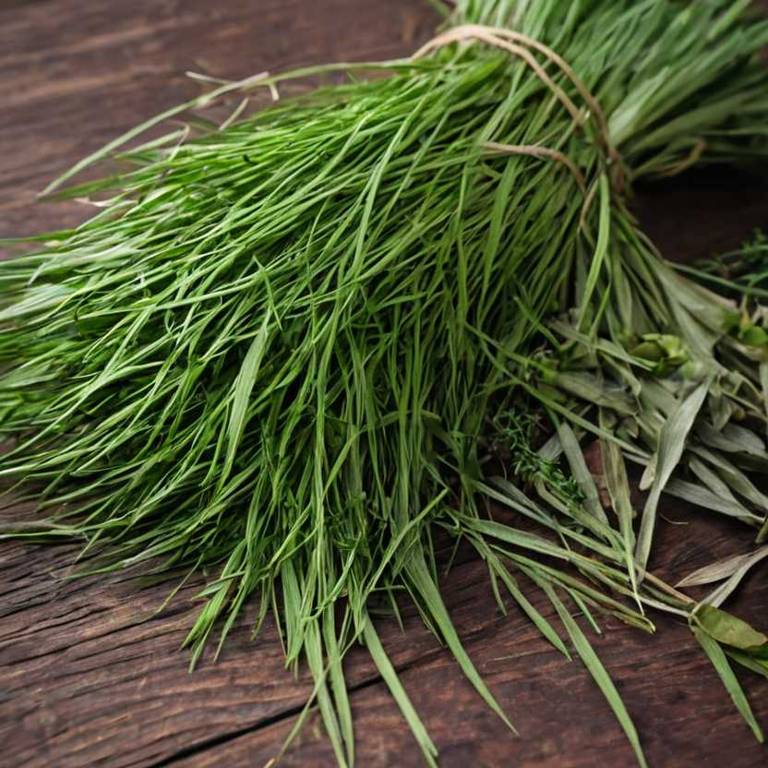By Leen Randell
Updated: Jul 05, 2024
What Are The Medicinal Properties Of Cymbopogon Citratus (Lemongrass)?

Cymbopogon citratus, also known as lemongrass, has health benefits such as reducing inflammation, fever, and stress.
Its medicinal constituents include citral, geraniol, and beta-pinene, which are responsible for its anti-inflammatory, antimicrobial, and antiseptic properties. Traditionally, lemongrass is prepared as a tea, oil, or essential oil and used to treat various health issues. However, excessive consumption of lemongrass can cause gastrointestinal upset, nausea, and allergic reactions.
It is essential to use lemongrass in moderation and under the guidance of a healthcare professional.
This article explains the health benefits, active constituents, medicinal preparations, possible side effects, and precautions related to Cymbopogon citratus.
- What are the health benefits of Cymbopogon citratus?
- What are the active constituents of Cymbopogon citratus?
- What are the medicinal preparations of Cymbopogon citratus?
- What are the possible side effect of using Cymbopogon citratus improperly?
- What precautions to take when using Cymbopogon citratus medicinally?
What are the health benefits of Cymbopogon citratus?
Cymbopogon citratus, also known as lemongrass, has health benefits such as reducing inflammation and fever, due to its high levels of citral and limonene.
Its antibacterial and antifungal properties help prevent infections and promote wound healing. Additionally, lemongrass tea has been shown to aid digestion, ease menstrual cramps, and lower blood sugar levels.
Its natural oils can also be used to repel insects and alleviate stress.
Here's a detailed article about the 10 health benefits of Cymbopogon citratus.
What are the active constituents of Cymbopogon citratus?
Cymbopogon citratus, also known as lemongrass, has active constituents such as citral, geraniol, and limonene that contribute to its medicinal properties.
Citral, in particular, has been shown to possess anti-inflammatory and antiseptic properties, making lemongrass a popular natural remedy for skin conditions and infections.
The essential oil extracted from the plant's leaves also exhibits antimicrobial and antifungal activity, highlighting its potential in natural medicine and aromatherapy applications.
Here's a detailed article about the 10 active constituents of Cymbopogon citratus.
What are the medicinal preparations of Cymbopogon citratus?
Cymbopogon citratus, also known as lemongrass, has medicinal preparations such as essential oils, extracts, and herbal teas.
These preparations are commonly used to relieve stress and anxiety, and to treat digestive issues.
Lemongrass oil is often used in aromatherapy to reduce pain and inflammation, while its extracts have been shown to exhibit antibacterial and anti-inflammatory properties, making it a natural remedy for various health conditions.
Here's a detailed article about the 10 medicinal preparations of Cymbopogon citratus.
What are the possible side effect of using Cymbopogon citratus improperly?
Improper use of Cymbopogon citratus, also known as lemongrass, increases the chances of experiencing side effects such as allergic reactions, skin irritation, and digestive issues.
High doses may cause dizziness, headaches, and stomach upset. Additionally, lemongrass may interact with certain medications, such as blood thinners and diabetes medications, leading to adverse effects.
Pregnant and breastfeeding women should also exercise caution when using lemongrass due to its potential impact on uterine contractions and infant growth.
Here's a detailed article about the 10 most common side effects of Cymbopogon citratus.
What precautions to take when using Cymbopogon citratus medicinally?
Before using Cymbopogon citratus, also known as lemongrass, for medicinal purposes, you must take precautions such as consulting with a healthcare professional, especially if pregnant, breastfeeding, or taking medications.
Lemongrass oil can cause skin irritation, allergic reactions, and interact with certain medications, including blood thinners.
Additionally, it's essential to use high-quality, pure lemongrass essential oil, free from adulterants and toxins, and follow recommended dosages to avoid adverse effects.
Here's a detailed article about 10 precautions to take when using Cymbopogon citratus.